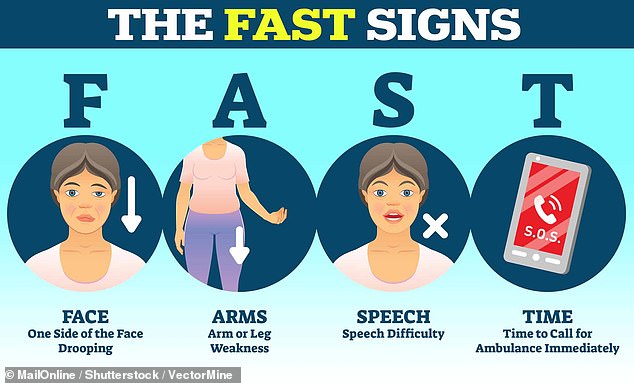Washing your hair in a salon is, for most people, a welcome moment of relaxation.
But a doctor has warned his clients that if they’re not careful, a hair wash could lead to a life-threatening stroke.
Dr. Arun Naik, a consultant neurosurgeon based in India, has taken to his Instagram page to point out the dangers of bending your neck too far back over the sink.
The uncomfortable position can compress or damage the arteries in the neck, he explainedwhich can restrict blood supply to the brain.
In less severe cases, this could cause unpleasant sensations such as dizziness, blurred vision, numbness, or difficulty speaking.
But if the arteries are crushed over a longer period of time, it can lead to a fatal stroke, Dr Naik told his 52,000 followers.
“People with high blood pressure, diabetes or a history of neck problems are at higher risk,” he added.
Doctors have coined the phenomenon “salon stroke syndrome,” and the first case was reported in the United States in 1993.
Since then, several examples have been documented in the medical literature, including one 50 year old woman whose “beauty salon bump” was initially mistaken for an intestinal problem.
Mum-of-two Adele Burns, from Glasgow, suffered a stroke in a beauty salon in 2016 after a coloring treatment required her hair to be washed six times. He was left unable to speak, see or move for 24 hours.
In another case, Elizabeth Smith of San Diego claimed she suffered a stroke because neither the bowl nor the chair fit her small frame, causing her neck to overextend.
Those who frequent the salon should keep in mind a few key tips that will avoid “salon stroke syndrome,” Dr. Naik advised.
First, make sure your neck has adequate support when resting it over a sink in a salon.
Dr. Naik suggested asking for a towel or pillow to be placed under your neck to prevent your neck from leaning too far back and “hyperextending.”
It may also be helpful to adjust the living room chair or lower the height of the sink so that the neck does not stretch too far back.
Another vital tip is to simply take breaks. Dr. Naik suggested changing positions to relieve tension in the neck.
But you should also watch for stroke symptoms: sudden numbness or weakness of the face, arm, or leg, especially on one side of the body, confusion, blurred vision, dizziness, and headache.
If you experience any of these unusual symptoms during or after washing your hair, notify your stylist and seek medical attention immediately.
Dr. Arun Naik, a neurosurgeon based in India, suggests asking for a towel or pillow to be placed under your neck to prevent your neck from tilting too far back and prevent ‘hyperextension’.

Stroke symptoms are commonly remembered by this four-letter acronym, FAST. Patients who suffer a stroke may often have their face drooping to one side, have difficulty raising both arms and difficulty speaking, while time is of the essence as immediate treatment for a transient ischemic attack (TIA) or A minor stroke can substantially reduce the risk of having a stroke. much deadlier stroke
Dr Naik added that if you have a history of vascular or neck problems, you should inform the salon staff and consider opting for alternative hair washing techniques, such as using a handheld sprayer while sitting.
Strokes affect more than 100,000 Britons each year and claim 38,000 lives.
This makes it the fourth leading cause of death in the UK and a leading cause of disability.
Nearly 800,000 people in the United States are hit by cars each year, resulting in 137,000 deaths.
The problem occurs when the blood supply to the brain is cut off, which kills brain cells.
The damage can cause long-term disability, affect the way people think and feel, and in the worst cases, be fatal.


